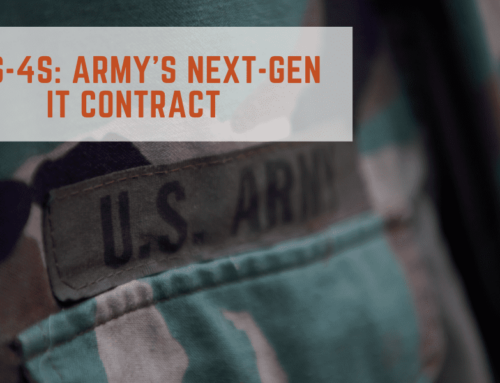Ken Blair
This is the story two prop efforts I have experienced and how I overcame unique difficulties to help win.
Challenge # 1
I was working with a small business in Ohio supporting their proposal effort for a DLA solicitation for enhanced combat helmets. My client had been in business for several years supporting several large and small police departments throughout the country. The company was very mature both in product engineering and in their approach to quality. The effort was planned to span 45-60 days. In the end, it took more than 18 months!
Before we reached our first draft review, one of our competitors lodged a protest. It seemed to be the industry position that these helmets were developmental items, while DLA was convinced they were commodities. I was alarmed when my client chose to ignore the protest and continue on without regard to the possible impact of the protest being upheld. Over the course of time, two additional pre-submittal protests were lodged, for essentially the same reason, and all were, to the benefit of my customer, dismissed. To compound the problem, the Army was involved in an internal effort to revise the specifications and was releasing changes on a nearly monthly basis. Of course, with every spec change came an amendment. When all was said and done, DLA issued 27 amendments over the course of 18 months, finally withdrew the RFP, and my client won the work through a reverse auction. I didn’t do anything to save this one, but since it was early in my proposal career, I learned that patience and follow-through are typically rewarded.
Challenge # 2
This was a $$MM-100’s solicitation for Insurance services $$$$$ by OPM to support Federal Government employees. The company I was supporting had been formed seven or so years earlier and given a sole source contract to perform the work. Now the Feds were competing the contract on a full and open basis, and my client had never responded to a FAR-constrained solicitation. I was brought in to manage the effort as a replacement for another proposal manager who had had a health issue. Concurrently with my start, the client brought in proposal training, but the training was at too high a level for the proposal team to completely grasp. I knew that I was in for a tremendous amount of hand-holding if we were to have any chance at success.
We determined that a storyboarding approach would be the best way to kick the effort off, with the goal to have the 150 technical deliverable done a day or so in advance of the submittal date. I conducted some additional training geared to using that approach and we were on or merry way! Throughout the storyboarding process I kept being asked, “how much detail do I need?” And I kept responding with “Look at the SOW and provide sufficient detail to show you know how to do the work.”
When we got to the first review, our storyboards encompassed over 675 pages (!!!) and I knew I was going to have some issues getting to page count. I immediately put another review in place and gave the writers (none of which were proposal professionals) guidance on how to restructure and pare down their content. For the interim review we had success – WE WERE DOWN TO 300 PAGES! Imaging my relief (/sarc)! The good news was we still had nearly a month to go and were still working through this problem.
About this same time, the client requested that I write responses to a number of requests by the Government (NOT initiated through the amendment process) to discuss what the Government should do regarding data rights to the source code my client had written under the sole source contract. That contract had no data rights provisions, and my client used the same software in support of the smaller commercial contracts they held. Teleconferences with lawyers abounded, and we were able to convince the Government that they had no data rights under the circumstances. Around the end of these back and forth discussions and exchanges, we got to our final major review and, to my delight, we were only fifteen pages over the 150-page limit. My capture manager and I worked to pare the content down, and when all was said and done, we had space for three words on the final page within the 150 pages allowed!
In the end, the Government acknowledged that our response developed such a well supported case that that they withdrew the solicitation and extended the sole-source contract for the client. I was told that in the debriefs to the other offerors, they provided enough of our content that no protests were lodged.






Leave A Comment